Iranian human rights advocates in the UK are poised to file a criminal complaint against Ataollah Mohajerani, an ex-Minister of Culture who wrote a book promoting the 1989 fatwa to murder Salman Rushdie.
Mohajerani, 68, now lives in London. His book A Critique of the Satanic Verses Conspiracy praised the ailing Ayatollah Khomeini’s call for “all brave Muslims” to “execute” Rushdie, and concluded that the writer was an “inherent apostate” who could be killed according to Islamic jurisprudence.
Mohajerani’s book has been reprinted 30 times in the intervening 32 years. In that time several translators and publishers who worked on Rushdie’s novel The Satanic Verses were assassinated by fanatics inspired by the fatwa.
Then on Friday, Rushdie himself was attacked and stabbed onstage at an event in New York. The 75-year-old is currently in hospital, having suffered life-changing injuries.
At least two prominent Iranian human rights defenders now intend to contact the British authorities over Mohajerani’s book.
One of them is Kaveh Moussavi, former head of public interest law at Oxford University and an arbitrator at the International Court of Arbitration.
“There are different gradients of Islamist lunatics,” he told IranWire. “There’s the lone wolf who goes into Charlie Hebdo and murders the editorial board, and then there are the slightly more intelligent ones who say that they’re ‘readers’.
“Whether it’s drip-by-drip or not, the creation of a whirlpool of violence and outrage leads to this kind of thing. Mohajerani’s book has contributed to that, I think, quite significantly.”
For his part, Mohajerani appears to be standing by his text. In a flurry of tweets on Saturday, he said a 31st edition of his book was in the works, that he hoped Rushdie could learn artistically from the experience of attempted murder, and that being taken to court would, in his view, be a “golden opportunity”.
Old Grounds Revived
IranWire spoke to Kaveh Moussavi about this subject once before: in 2018, when the matter of Ataollah Mohajerani’s having settled in London first came to light.
At the time, although he was was of the opinion that Mohajerani’s book contained “nothing short of incitement to murder”, the lawyer was unconvinced a case against him could be pursued in the UK.
The alleged crime in question, incitement to murder, or to commit a terrorist act, or – in Moussavi’s view – both, is not subject to international jurisdiction. The book was published in Iran, at a time when Mohajerani was a resident of that country.
But subsequent events, Moussavi said, had led him to revise his opinion. The attack in New York, he said, showed again that the incitement to murder Rushdie was an ongoing or “continuing” crime.
“An example of a continuing crime,” he told IranWire, “is that the bodies of the 1988 massacre victims haven’t been recovered, so their families are still being tortured.
“The torment and personal torture Salman Rushdie and those who loved him went through for all those years, hiding from murderers, is a continuing crime they have been subjected to.”
Previously, he said, Mohajerani could only be accused in the UK of an offence under common law, but since the Serious Crime Act 2007, he could potentially be charged with an indictable offence under statute.
Incohate offences relate to criminal acts that have not, or have not yet, been committed, and include “encouraging or assisting” crimes. The definition replaced the previous, common law offence of “incitement”.
However, Moussavi said, “It became an actual crime when that person stabbed and attempted to murder Salman Rushdie.
“The courts have been clear. There need be no direct connection between the assailant and the instigator. It’s enough for them to have created the circumstances, and milieu, that radicalized the assailant to be culpable for their actions.”
What About Free Speech?
The original instigator in this case was, of course, Ruhollah Khomeini. The original fatwa covered all those involved in the publication and promotion of The Satanic Verses, including editors, translators and even individual booksellers.
Mohajerani’s book, published barely a month and a half later, backed up the fatwa by asserting: “Almost all Muslim schools of jurisprudence share the view that whoever insults the prophet deserves to be killed.
“His repentance cannot be accepted… and since his [Rushdie’s] insults, ridicules and affronts are intentional and by choice, he is an innate apostate.”
Today, however, Mohajerani describes himself as a journalist and historian. On Saturday he wrote on Twitter that, on being asked by an MP in 1997 if he would be prepared to kill Rushdie himself, he had answered: “I am a writer and my job was to explain Imam’s [Khomeini’s] fatwa and critique the novel... You do the other thing [the killing].”
Asked if Mohajerani could not argue that he had simply “reviewed” and “critiqued” the ruling and the book, Moussavi replied: “’Honest guv, I was just interpreting Mein Kampf.’"
Both the UK and Iran, since 1976, have been signatories to the International Covenant on Civil and Political Rights (ICCPR). Under Article 20, both are required to prohibit in their domestic laws “any advocacy of national, racial or religious hatred that constitutes incitement to discrimination, hostility or violence”.
Limits to freedom of expression have also been defined in both UK law and by the European Court of Human Rights. “There are boundaries to freedom of speech," Moussavi said. "You can’t scream ‘Fire’ in a cinema because people get trampled to death; you can’t call for all Jews to be murdered. You can’t enjoy the benefits of the international order and not be tied down by its restrictions. It’s not an a la carte menu.
“With this kind of thing, the predictable consequence, especially when the issuer of the fatwa openly called for murder, is that if you engage you are adding to that fire. That fire is a criminal act.”
Mohajerani’s Response: Bring it On
So far Ataollah Mohajerani has declined to give interviews on the content of his book or the allegations against him. Several TV reporters this week tried to doorstep him at his house in the Pinner area of London without success.
Online, he incorrectly accused Kaveh Moussavi of soliciting and holding onto donations to build a case against him. He also incorrectly claimed the latter had said he was a judge in The Hague.
In fact, Moussavi only ever sought and obtained public funding for an Iran-linked case while preparing the file for Swedish prosecutors against former jailer Hamid Nouri, on which he also spent £43,000 of his own money. “The Islamic Republic has carried out so many egregious crimes that resources are limited,” he said.
Despite not speaking to the press, however, Mohajerani has now twice suggested he would welcome a court date in the UK. In another tweet on Tuesday, he added: “I don't know how serious those suing me are… But I am serious. I will turn the court into the trial of Salman Rushdie and The Satanic Verses.”
visit the accountability section
In this section of Iran Wire, you can contact the officials and launch your campaign for various problems




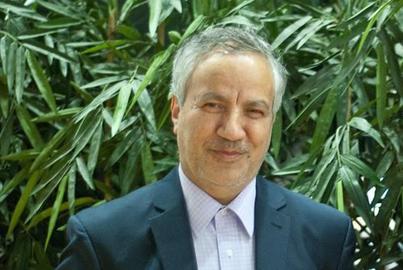


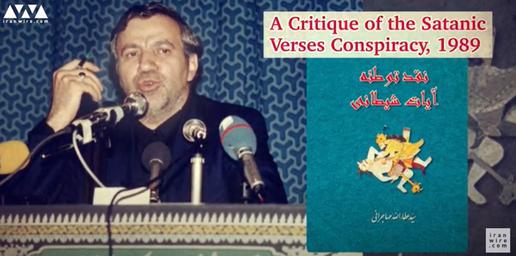
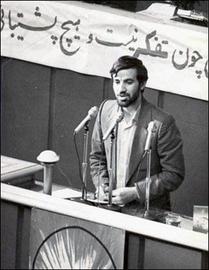

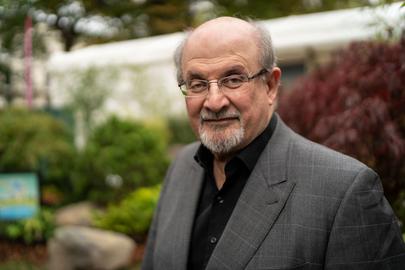
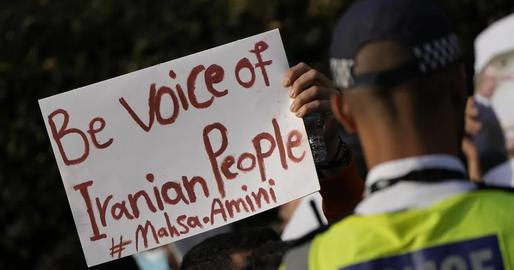
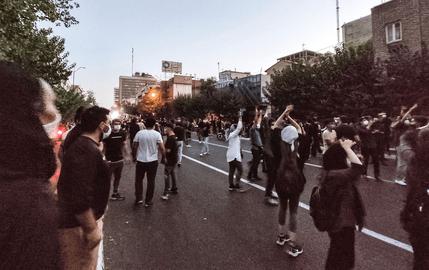


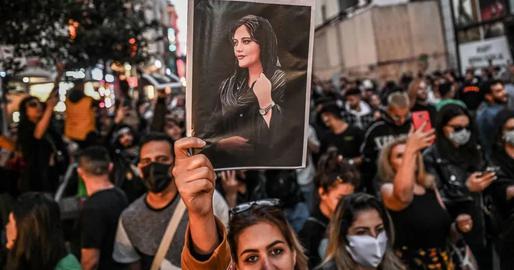
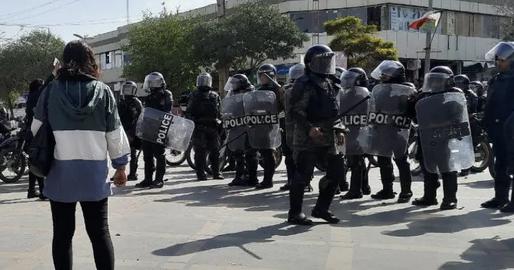
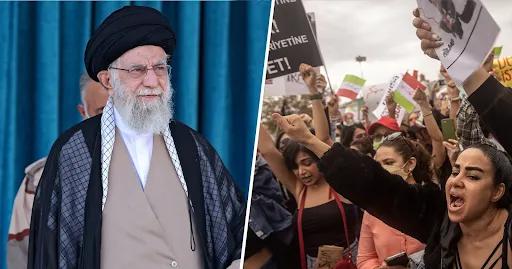



comments